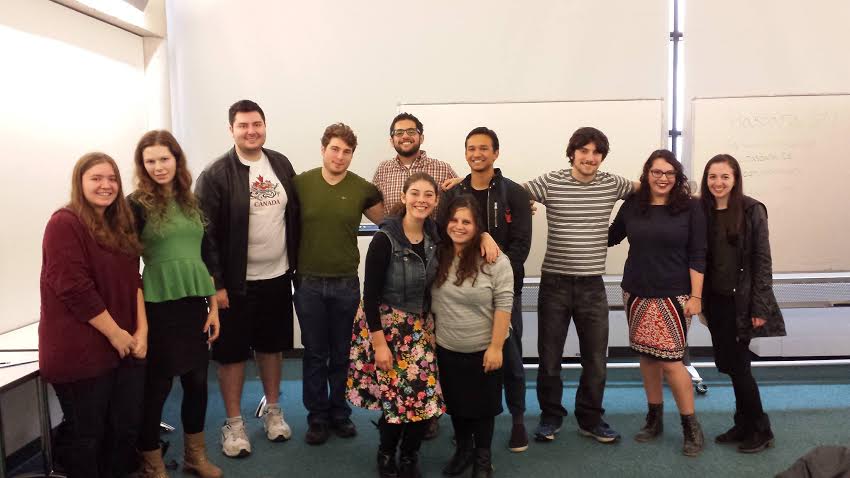An Egyptian man, Hussein Aboubakr, spoke to York students last week about his persecution by state police for conducting research at the Israeli Academic Center of Cairo where he produced pro-Israel content.
Aboubakr has been working with Stand With Us, an Israeli advocacy organization, to speak with students on college and university campuses about his experiences.
“I started to get arrested casually,” he says. “At the beginning, there was no physical torture. They would just interrogate me for a week. I would tell them I’m sorry, that I’m not going to talk to Israelis again, I’m not going to write anything pro-Israel again. Then I do it again, and they arrest me again.”
It went on like this for a year before Aboubakr was detained in the military prison, where he endured intense interrogation, torture, and humiliation.
“They were suspecting me to be a Jewish convert, an Israeli spy, an apostate, an atheist. After the interrogation, they sent me to the military prison and everyday the General would come and make the soldiers get me out of the cell, strip me naked, make me crawl on the stones outside, make them hit me with sticks, with their belts, make me clean the bathroom. Daily torture and humiliation.”
A month afterwards, the Arab Spring started. “The first few months were absolute euphoria,” says Aboubakr. “The whole world was talking about us. But all of a sudden, after three months, things start to take a wrong turn.”
Aboubakr participated in the Egyptian revolution until he was forced to leave Egypt as a political refugee.
Despite the promise for a more democratic society, one which tolerates those who dissent, such as Aboubakr, the Muslim Brotherhood won the parliamentary election.
“They started to use the same oppressive rules as the previous dictatorship. They were targeting liberals, leftists, socialists, while Christians started to face even worse persecution by the Muslim Brotherhood.”
Aboubakr had made friends with the Coptic Christians. He references the Nag Hammadi massacre in which seven Copts and one Muslim bystander were murdered by Muslim gunmen.
Later on, officers came to Aboubakr’s work and had him fired.
“I was seen as an apostate in the eyes of my family,” he says. “I left the faith. In 2012, I found political asylum in the United States.”
Aboubakr has not heard from his family since.
“Arabs have a great notion of honour and shame and that’s a very present concept in Arab society. It brought them (his family) shame and they just had to ostracize me out of society.”
“This is the reality in the Middle East. People just hate the Jews. It was everywhere. The whole mainstream culture of today. It’s about Jews and Anti-Semitism. It’s in mosques. It’s in prayers. It’s in schools. It’s how people identify themselves in the Middle East, through their hatred for Israel.”
Aboubakr takes issue with the term “Islamophobia.” He says, while anti-Muslim bigotry is a real problem, the term “Islamophobia” is a very problematic term.
“It’s a term used to immediately dismiss any criticism of Islam or Muslim society,” he says.
There is an incredible amount of people who believe Islam is a race, he adds. Islam is not a race. Islam is a belief system. Islam is a religious ideology. Criticizing Islam is the same as criticizing Christianity. Criticizing Muhammad is the same as criticizing Christian figures. Criticizing the Koran is just like criticizing the Bible.
“If I’m allowed to criticize the Judeo-Christian traditions, why am I not allowed to criticize Islam as a faith? Ideas should not be beyond scrutiny. No idea should be above scrutiny, above mockery, and ridiculing even.”
Hussein Aboubakr is now a defence language institution assistant professor for the U.S. Department of Defense.
Egyptian man tours York after receiving political asylum in the United States


